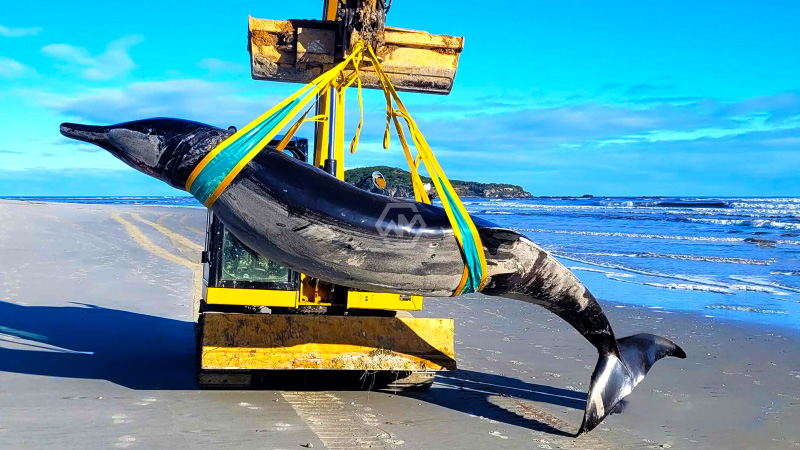- First confirmed specimen of spade-toothed whale allows unprecedented study.
- Discovery prompts genetic testing to reveal species mysteries.
- Collaboration with Māori iwi highlights cultural and scientific significance.
The recent discovery of a spade-toothed whale on a beach in New Zealand marks a significant breakthrough in marine biology. This elusive species, never before seen alive, has baffled scientists with its rarity and mysterious habits in the southern Pacific Ocean.
The whale’s discovery comes after years of speculation and limited sightings of this cryptic species, challenging the conventional wisdom about marine mammal research.
Unveiling the Secrets of New Zealand’s Spade-Toothed Whale: A Milestone in Marine Biology
The recent appearance of a spade-toothed whale on a New Zealand beach has stirred excitement and curiosity among marine scientists worldwide. This species, known for its elusiveness and lack of documented sightings, presents a rare opportunity for researchers to study its anatomy, genetics, and ecological role. The find, believed to be the first confirmed specimen suitable for detailed scientific examination, could provide critical data on the whale’s feeding habits, migration patterns, and broader conservation implications.
Genetic testing is underway to definitively confirm the whale’s identity, a process expected to shed light on its evolutionary history and genetic diversity. This breakthrough underscores the importance of preservation efforts in the southern Pacific Ocean, a region known for its deep ocean trenches and diverse marine life. The collaboration with local Māori iwi adds a cultural dimension, recognizing whales as sacred treasures and highlighting the intersection of scientific research and indigenous knowledge systems.
The discovery also raises broader questions about marine mammal conservation and the challenges of studying animals that rarely surface. It underscores the need for international cooperation in safeguarding ocean biodiversity and understanding the impacts of environmental changes on vulnerable species. As researchers await the results of genetic analysis, anticipation grows within the scientific community for potential new insights into one of the ocean’s most enigmatic inhabitants.
The discovery of the spade-toothed whale in New Zealand represents not just a scientific milestone but a testament to the ongoing exploration of our planet’s oceans. With each new finding, we deepen our understanding of marine biodiversity and reaffirm the importance of conservation efforts in preserving these delicate ecosystems for future generations.
“The recent discovery of a spade-toothed whale on a New Zealand beach has stirred excitement and curiosity among marine scientists worldwide,” said Dr. Kirsten Young, a senior lecturer at the University of Exeter.



